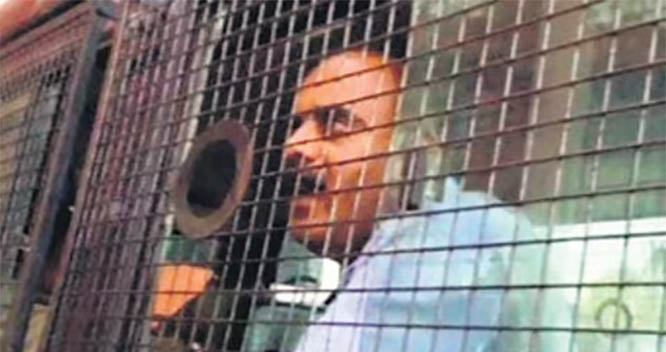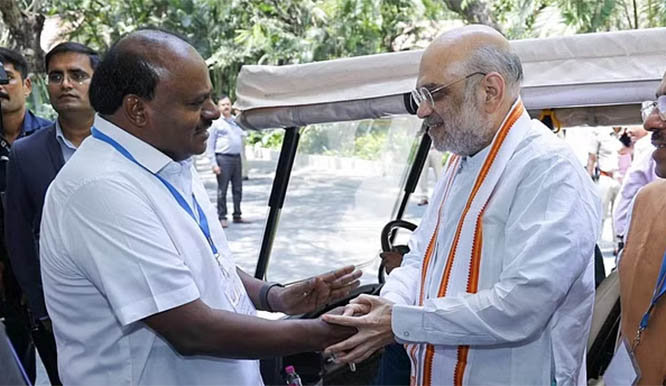While #MeToo campaign victims are being hailed for coming out in public against their perpetrators, many of them are being viewed with a tinge of suspicion by the society. Why are they complaining now? Is it for publicity? Is it political?
Unfortunately, many more such questions are being raised behind curtains indirectly vouching for the culprits’ action. This kind of attitude has bolstered culprits to drag the victims to the court. In that case, what chances do the victims will have especially if they do not have any proofs to back up their allegation? How does the law come to the rescue of these victims? Should the victims fight it out in the social media or knock the doors of the court? Recently, news media reported that even Supreme Court declined the 'urgent hearing' of MeToo petitions.
The Sexual Harassment of Women at Workplace (Prevention, Prohibition and Redressal) Act, 2013, could be a relief for the #MeToo victims to reclaim their dignity and pride.
Society for generations has been governed by patriarchal mindsets treating a woman like chattel owned by a man, at his beck and call, with no sense of individuality. Girls have been brought up to tolerate and remain silent. The occasional few who did dare to venture out in pursuit of their dreams were branded deviant. A woman venturing out to work was acceptable only if it was inevitable for her to contribute to the family income. If she complained about her work environment, she would be told to quit or adjust for the sake of the family income. Invariably she would be blamed for putting herself in situations. The only choice for a woman was to stay mum if she wanted a career. It is this inevitability and vulnerability of women that made them easy victims of harassment at workplace.
It was accepted as a necessary evil to cope with rather than complain. But it is only in the 1990s that the concept of ‘sexual harassment at workplace’ came to be recognised and finally found a formal mention in the United Nations Convention on the Elimination of all Forms of Discrimination against Women, 1992 (CEDAW) which was ratified by India in 1993. However, no legislation was promulgated to fulfill this international obligation.
It is then that the Supreme Court of India stepped in to fill in the lacuna by pronouncing guidelines to prevent and redress sexual harassment at workplace in the landmark case of Vishaka Vs. State of Rajasthan in 1997.
The Constitutional mandate lies in Article 14 (right to equality and equal treatment), Article 15 (not to be discriminated by gender), Article 19(1)(g) (Right to work) and Article 21 (Right to livelihood and to dignity and privacy at workplace).
Understanding the urgency and seriousness involved, the Supreme Court made it mandatory for every workplace private, public or the unorganized sector, to follow these guidelines till legislation was promulgated. However, not many employers took the issue seriously despite warnings and deadlines from court. It is only in 2013 that these guidelines crystallized in the form of the Sexual Harassment of Women at Workplace (Prevention, Prohibition and Redressal) Act.
So, what exactly is this Act?
The emphasis of this law is on “prevention” and the onus is on the employer to draft a sexual harassment policy, set up an Internal Complaints Committee (ICC) and create awareness amongst employees regarding the same. “Protection” of women employees is the next mandatory obligation of the employer by creating a safe and comfortable work environment. If there is a proved incident of harassment, it is the duty of the employer to ensure that necessary action is initiated against the perpetrator according to service rules or as otherwise prescribed in the harassment policy.
If a workplace does not have an ICC or the complaint is against the employer himself, such complaints may be considered by the Local Complaints Committee set up by the district administration.
Sexual harassment need not be physical only, it could be any verbal or nonverbal conduct that is unwelcome and uncomfortable for a woman. The aggrieved woman endures a lot of trauma and emotional upheaval. For some it may take a few days, for others it may take months or years to even accept the fact that she has been harassed and then more time to muster the courage to complain. Such being the situation it is very unlikely that there will be hardcore evidence to prove her case.
Further, witnesses may not be forthcoming for various reasons. Considering these ground realities, it is presumed in law that when a woman complains of sexual harassment, she is speaking the truth and the perpetrator is considered to be guilty till he proves his innocence.
Law mandates that the aggrieved woman must complain within 3 months from the date of the incident and only in exceptional cases the ICC may condone the delay beyond 3 months.
The emphasis of the law is to make the victim comfortable and confident throughout the process. So, it is mandatory that the ICC should be headed by a woman and not less than half the committee should be women. Immediate interim reliefs may be recommended by the ICC. These include leave from work up to 3 months (in addition to the leave she is otherwise entitled to), ensuring immediate medical or psychiatric help for her if required, transferring the perpetrator or the victim to another branch upon such request by the victim. If the victim is not in a position to complain in person, a family member or friend can complain on her behalf.
At every stage strict confidentiality has to be maintained. The identity of neither the victim not the perpetrator should be disclosed to anyone and a member of the ICC can be penalized or removed if found to have violated this mandate.
Before initiating enquiry, on the request of the victim, efforts may be made towards conciliation. If the perpetrator apologizes “to the satisfaction of the woman” or some other terms and conditions are mutually agreed upon and she does not wish to proceed further, the matter may be closed as amicably settled.
In an enquiry the emphasis is on understanding whether the alleged action was ‘unwelcome’ to the victim. The requirement is to get into the shoe of the victim and understand her situation and feeling. The apex court has mandated that women should not be treated as a class for what is acceptable for one may not be acceptable to another.
Enquiry has to be completed within 90 days and if the harassment amounts to an offence under the Indian Penal Code (IPC), simultaneously a complaint may be registered with the police which will be an investigation independent of the ICC proceeding and vice versa.
If the victim is a minor, action can also be initiated under the Prevention of Child Sexual Offences Act (POCSO). Once the ICC gives its recommendation, it is the duty of the employer to implement it. Action can be initiated under the service rules of the accused. It could range from withholding promotion or bonus to transfer to even removal from service depending on the gravity of the act. In addition the ICC can also recommend payment of damages and compensation to the victim by the perpetrator which will be deducted from his salary or directly paid by him by the victim.
Though the tenor of the law is to protect and support women, there are sufficient riders to ensure against misuse. If conciliation is reached, there is a specific prohibition on any monetary component in such settlement.
Further, if it is found that if the complaint is false or if a witness has made false statements or false evidence has been created, appropriate punishment will be meted out to such complainant or witness.
After enactment of the 2013 legislation most organisations and institutions have adhered to the mandate and have been implementing their obligations in POSH (Prevention of Sexual Harassment) cases. Since confidentiality is maintained at all levels, most of these cases are not within public domain.
But the ongoing ‘Me Too’ campaign throws up a pertinent question as to whether confidentiality itself could become counterproductive to the object of the law with non-disclosure serving as an encouragement to the perpetrator. As the saying goes “Sunshine is the best disinfectant.” If the victim wants to come out in the open in a bid to expose such perpetrators especially those ensconced in the higher echelons of power who but for such media glare would dust off or trivialize the issue, is confidentiality really needed. Defamation is a handy tool for the perpetrator to gag public exposure.
However, if truth of the allegation is proved, action for defamation stands defeated and in fact could become a counterproductive handle for initiation of a counter defamation action by the victim. If no charges are proved in an IPC offence, the perpetrator can initiate a proceeding for malicious prosecution against the complainant.
Sexual harassment law in India is specific in protecting women; however, the accused may be a man or a woman. In fact organisations are adopting gender neutral sexual harassment policies understanding that men could also be equally vulnerable.
As more skeletons tumble out we seem to be evolving towards new paradigms of workplace gender equality, crystallizing laws and procedures to suit emerging situations. Crux being that sexual harassment in the workplace is no longer an issue to be swept under the carpet.
(The author is an advocate and the Secretary of Karnataka State Bar Council Sexual Harassment Redressal Committee)








Comments
Add new comment